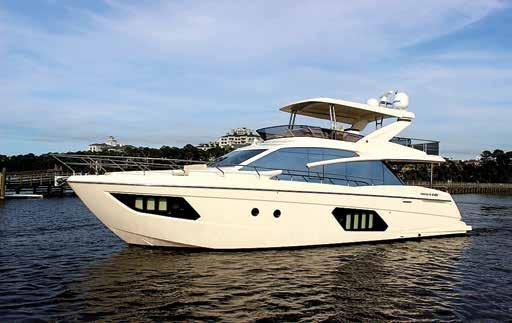
3 minute read
Marine Insurance Tips
1) Current Trends in Marine Insurance:
We are presently in a tough market for marine insurance, especially on vessels over 30 feet and over 15 years of age. South Florida is considered to be a higher risk area with theft issues, coastal hurricane exposure, a litigious environment, among other factors. Within the last few months, a couple of yacht insurance carriers have begun non-renewing policies and have pulled out of the State of Florida entirely, pushing some vessels into the surplus lines market (known as non-admitted carriers). A non-admitted carrier is less regulated by the State insurance department, not financially backed by the Florida Insurance Guarantee Association “FIGA”, and can raise and lower rates and make policy changes (at renewal---not mid-term of a policy period) more easily as the market dicatates. In general, it is better to obtain insurance with an “Admitted” carrier, but often this is not possible. Another current trend is for some insurance providers to require vessels not be kept on a lift during a hurricane. It may seem like a lift is a safe place to secure a vessel, BUT loss experience has shown that lifts are not designed to handle the torque and wind load of a powerful storm. Another issue with securing a vessel to a lift is storm surge, where the water raises up and over or into the vessel.
Advertisement
2) Tips on getting the lowest rate:
There are a few things that help boaters obtain the lowest rate possible. Completing a boating

safety course, or obtaining a Captain’s license, are both good ways. On smaller vessels most insurance companies give credit for having prior insurance, having favorable credit, being claim free, owning a home, and having a safe place to moor/store the vessel.
On larger vessels and those over 10 years of age, an in and out of water survey is most often required every three years (some carriers require within the last 18 months). It is important to keep this in mind, next time you have the vessel hauled out for annual maintenance, in case it is time for a new survey. On high value vessels and most importantly vessels with multiple outboard engines, it is normally required that the vessel have a GPS theft tracking device—and that the device have a current monitoring contract in effect at the time of a loss.
3) Hurricane Preparedness
It is vital to have a hurricane plan in place. Most seasoned boat owners and those who have been through a hurricane are more familiar with the process than newer boaters. Hauling a vessel out of the water and securing it inside a building or next to a house on a trailer is a good idea. If a vessel will remain in the water, remove all loose covers & canvas, lower or remove outriggers, antennas, etc. Some insurance carriers exclude coverage if a vessel is on a lift during a storm (check your policy). Plan in advance and have a backup plan if needed.
4) Things not to claim:
Insurance is meant to provide protection for catastrophic loss, and is not designed to be a maintenance plan. A small scratch in the gelcoat or a minor dent on a prop should be taken care of out of pocket. It often saves a significant amount of money to carry higher deductibles and self insure for smaller issues.

5) Why it is more expensive to title a vessel in a Corporation or LLC
Be aware that some insurance companies charge extra premium if a vessel is not titled in an individual name. A corporation/trust/LLC is a different type of entity, often with other exposures, and although these could be a way to protect assets and limit liability, this is not always the case. In addition to possible added premium, there is also a cost to setup and maintain a corporation, extra tax return, etc. Richard “Rick” Gibbs III Lauderdale Marine Underwriters, Inc.










